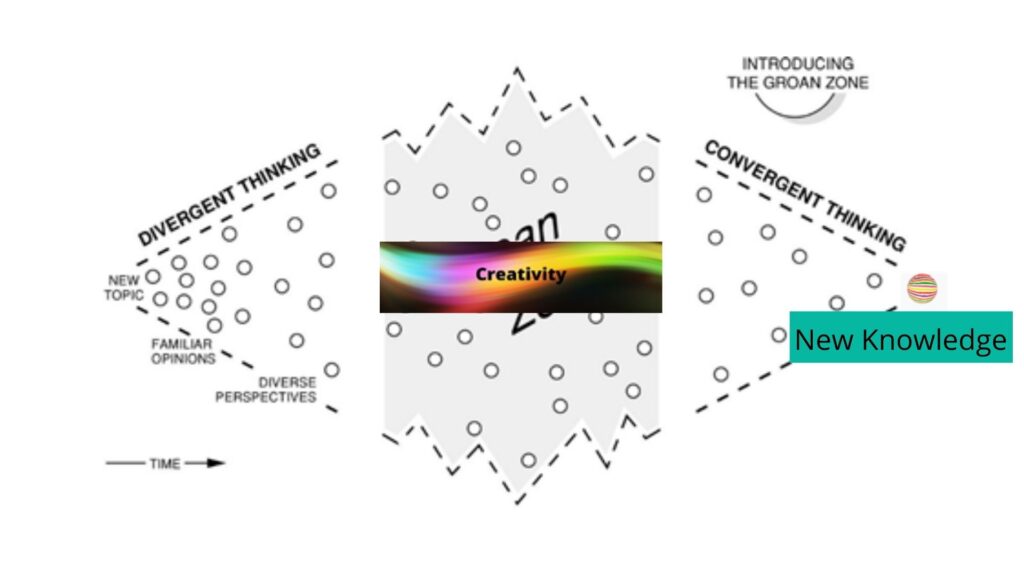“Scientific facilitation as a form of interactional expertise that explains how facilitating scientific teams requires skills in managing interpersonal interactions as well as understanding how different types of disciplinary knowledge integrate in the creation of new knowledge” (Cravens et al., 2022 pg. 256).
Does the grant proposal you are working on call for convergent research, integrated research, cross-cutting questions, or a multi-disciplinary approach? Then you might need a science facilitator

About Facilitation
Who: Whole teams
What: Science Facilitation is about creating a process to create new knowledge.
- Divergent Science uses a combination of team science and science facilitation to align the team’s ideas and objectives to write large complex proposals
- A customized approach that includes a combination of trainings/workshops, facilitated meetings (kick-off meetings, onboarding calls, and more!).
When: 3-12 months before the event.
Where: Virtual or In-person
A Customized Experience
Divergent Science provides a customized learning experience. The cost estimates include customization of materials to ensure they are directly tailored to your needs, and 1-2 prep meetings with the client per activity. DSL estimates spending approximately 3 hours of prep time for every hour of training/facilitation.
Contact us for a customized Scope of work for your team or institution.
We use thoughtful pricing based on your current team needs.
How it Works
Teams *think* that decision-making looks like this because they have a clear end goal (submit the proposal):

In reality team members have different values, visions, and ideas about the research. Their thinking actually looks more like this:

Divergent Science will use a combination of science facilitation and SciTS literature to help the team engage in product divergent thinking and convergent thinking to align ideas with the team vision and create new knowledge.

This might sound easy in practice. However, facilitation literature calls the region in the middle the groan zone. This is where teams wander, get lost, and have conflicts. Our goal is to turn the groan zone into a space of creativity to propel scientific ideas.

The Divergent Science Mission is to empower scientific teams to create new knowledge and build solutions to solve complex global challenges.
Contact us for a customized scope of work for your team or institution.
References
- Cravens, A. E., Jones, M. S., Ngai, C., Zarestky, J., & Love, H. B. (2022). Science facilitation: navigating the intersection of intellectual and interpersonal expertise in scientific collaboration. Humanities and Social Sciences Communications, 9(1), 1-13.
- Hall, K. L., Vogel, A. L., Stipelman, B. A., Stokols, D., Morgan, G., & Gehlert, S. (2012). A four-phase model of transdisciplinary team-based research: Goals, team processes, and strategies. Translational Behavioral Medicine, 2(4), 415–430. https://doi.org/10.1007/s13142-012-0167-y
- Kaner, S., Lind, L., Toldi, C., Fisk, S., & Berger, D. (2014). Facilitator’s guide to participatory decision-making, second edition. San Francisco, CA: Jossey-Bass.
- Tuckman, B. W., & Jensen, M. A. C. (1977). Stages of Small-Group Development Revisited Purpose of Methodology of This Review Review of the “ New ” Literature Purposive Performing. Group and Organisational Studies, 2(December), 6. Retrieved from https://pdfs.semanticscholar.org/82ce/5d6862e726c9221104fe67b0e3c8fe890b9a.pdf
